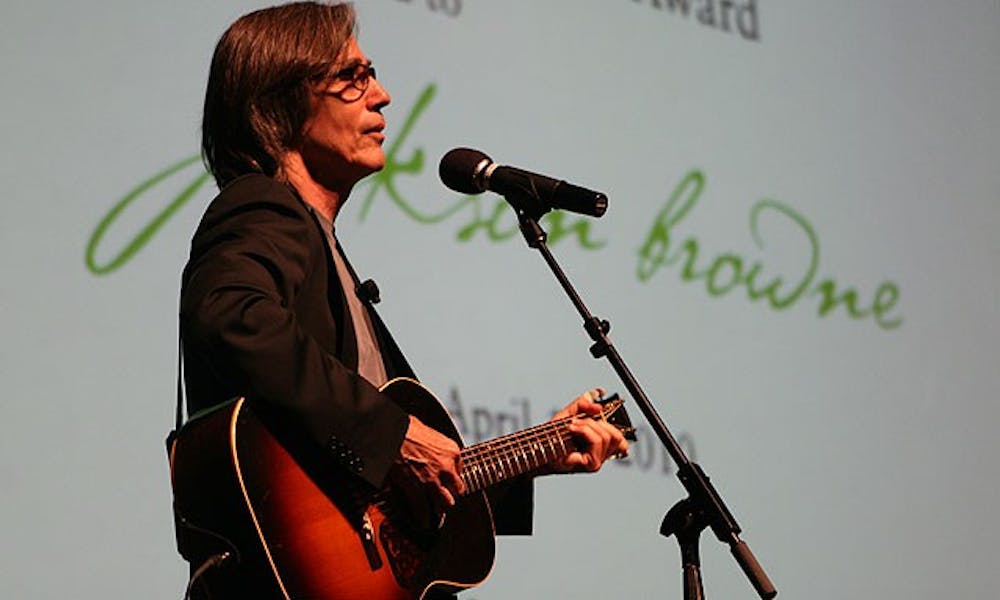Jackson Browne is no stranger to success.
Singer-songwriter Jackson Browne received the 2010 award for Duke Lifetime Environmental Achievement in the Fine Arts in Page Auditorium Saturday afternoon. The ceremony, which drew a crowd of more than 100, annually honors an artist whose work has inspired others to create a sustainable future worldwide. The award was established last year by the Nicholas School for the Environment, and actor Robert Redford was the inaugural award recipient.
Inducted into the Rock and Roll Hall of Fame in 2004, Browne has become a household name for many with famous hits, including “Running on Empty” and “Somebody’s Baby.” His next album, titled “Love is Strange,” is set to release next month.
“Whatever solutions we find must be solutions that we find together,” Browne said.
In his speech, Browne emphasized the need for worldwide cooperation in solving problems and highlighted connections between environmental and social causes. He said he believes that ideas such as human rights and environmental protection are linked, and that there is a strong relationship between poverty and sustainability.
“Those on the margin of society have the least opportunity to be in tune with the natural world,” he said.
A political activist throughout his career, Browne said he highlights environmental themes and encourages sustainability in his work. He is a member of Musicians United for Safe Energy, a group opposed to nuclear energy use, and most recently endorsed John Edwards in the 2008 presidential campaign. He has performed at benefit concerts for various nonprofit organizations.
Ariel Dorfman, Walter Hines Page Research Professor of literature and Latin American studies, introduced Browne at the ceremony and spoke to his success and character. A close friend of Browne, Dorfman is also famous for his own political activism in his home country of Chile.
“[Browne] is filled with a deep humanity,” Dorfman said. “He holds each person sacred, and it’s not strange that he wants to treat the earth the same way.”
Browne also discussed environmental issues, such as the problem with single-use plastics, which he said were uneconomical because they are not biodegradable and cause elevated water costs.
Despite serious challenges, however, Browne said he maintains a strong sense of hope for the future and believes in worldwide potential for sustainability.
Browne ended his speech by singing for the audience, including an improvisation on songs he is currently writing.
“Cutting through the veil of illusion, moving beyond past conclusions—if I could be anywhere right now, I want to be here,” Brown sang.
Get The Chronicle straight to your inbox
Sign up for our weekly newsletter. Cancel at any time.

